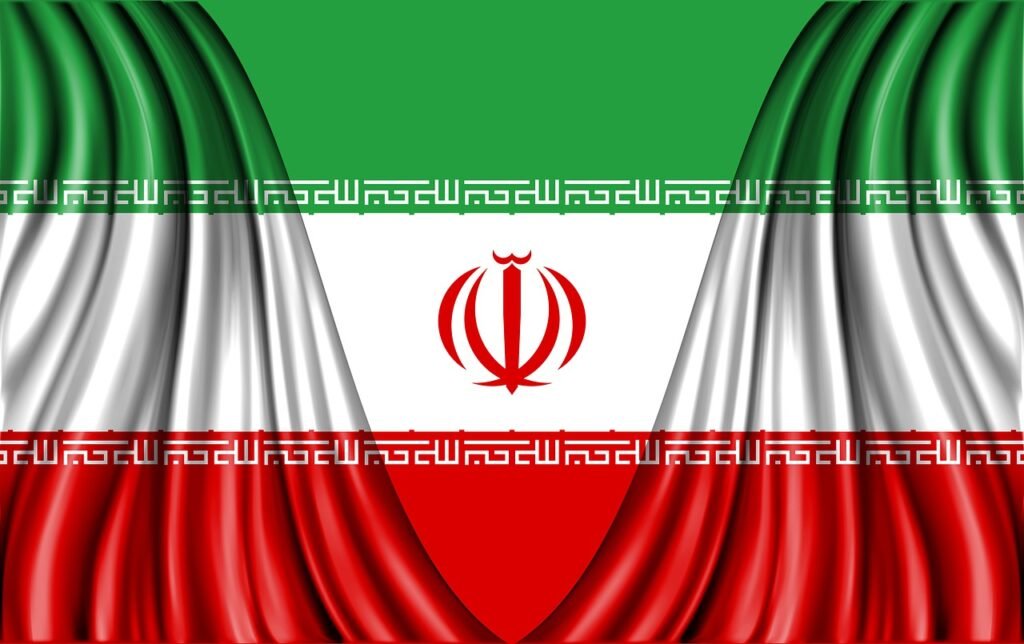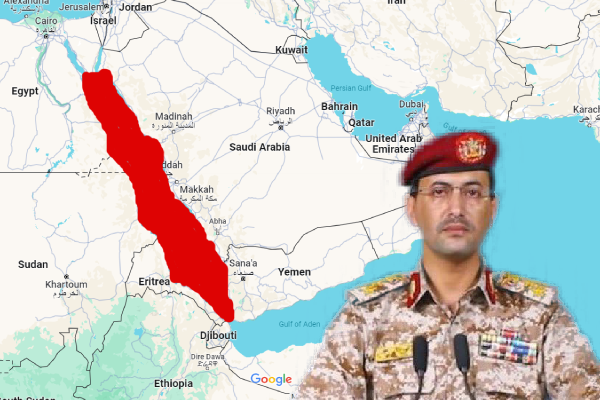The Israel-Hamas war is now spreading in the Red Sea. The Israel Defence Force initiated Operation Iron Swords on October 7, 2023, in response to a terrorist attack by Hamas in Israel.
In a show of solidarity with Gaza, Houthi rebels from Yemen launched attacks on Israeli ships in the Red Sea. This development raised security concerns in the region, given the Red Sea’s significant role in global trade, with nearly 12% of the world’s trade passing through it. To safeguard these commercial interests, the USA, along with nine other countries, launched Operation Prosperity Guardian.
This blog will delve into the Houthi rebels, the commercial importance of the Red Sea, and the repercussions of the Houthi attacks on the global economy.
Table of Contents
WHO ARE HOUTHI REBELS?

The Houthi rebels, also known as Ansar Allah (Supporters of God), are a Shiite Muslim insurgent group based in Yemen. The movement originated in the 1990s and is named after its founder, Hussein Badruddin al-Houthi. The group is primarily composed of Zaidi Shia Muslims, a minority sect in Yemen.
The Houthi rebels have been involved in multiple conflicts with the Yemeni government over the years, fuelled by political, religious, and economic grievances. They gained prominence in the early 2000s, with the Yemeni government accusing them of seeking to overthrow the government and establish a Zaidi Shiite theocracy.
The conflict escalated significantly in 2014 when the Houthi rebels took control of the Yemeni capital, Sanaa, and other key areas. This led to a complex and multifaceted conflict involving not only the Houthi rebels and the Yemeni government but also various regional and international actors. Saudi Arabia and a coalition of Arab states intervened in 2015 to support the Yemeni government against the Houthi rebels.
The conflict has resulted in a humanitarian crisis, with widespread displacement, food shortages, and other challenges affecting the civilian population. The situation in Yemen remains highly complex and volatile, with ongoing efforts to find a political resolution to the conflict.
HOUTHIS ARE BACKED BY IRANIAN REGIME

There have been allegations that Iran has supplied the Houthi rebels with weapons, ammunition, and military technology. The types of weapons used by the Houthis, including ballistic missiles and drones, have been cited as evidence of external support, with some experts pointing to Iranian origin or influence in the development of these weapons.
Iran has expressed political support for the Houthi movement. Iranian officials have criticized the military intervention in Yemen led by Saudi Arabia and its allies, advocating for a political solution to the conflict. This political stance aligns with the Houthi rebels’ calls for an end to foreign intervention.
There are allegations that Iran has provided training and advisory support to the Houthi rebels. Reports suggest that Iranian military advisors may be present in Yemen, assisting the Houthi forces with military strategy and tactics.
It is important to note that while there is evidence pointing to Iranian support for the Houthi rebels, Iran has denied direct military involvement in Yemen. The conflict in Yemen is complex, with various internal and external actors involved, and the situation has evolved. Accusations and denials regarding external support for different factions in Yemen continue to be part of the ongoing geopolitical dynamics in the region.
COMMERCIAL SIGNIFICANCE OF THE RED SEA
The Red Sea holds significant commercial importance due to its strategic location and its role as a key maritime route. Here are several aspects that highlight the commercial significance of the Red Sea:
- Global Trade Route: The Red Sea is a vital waterway that connects the Mediterranean Sea to the Indian Ocean. It serves as a critical link between Europe, the Middle East, and Asia. Almost 12% of global trade passes through the Red Sea, making it a major international trade route for shipping goods, including oil, natural gas, and various commodities.
- Suez Canal: The Suez Canal, located at the northern end of the Red Sea, is one of the most important artificial waterways in the world. It allows ships to bypass the lengthy and treacherous trip around the southern tip of Africa, reducing travel time and costs. The canal facilitates the transit of a large volume of cargo and is a key conduit for maritime trade between Europe and Asia.
- Oil and Gas Transportation: The Red Sea is a crucial route for the transportation of oil and natural gas. Oil-producing countries in the Middle East, such as Saudi Arabia and Iran, rely on the Red Sea for shipping their energy resources to global markets. The Bab el-Mandeb strait, at the southern end of the Red Sea, is particularly important for the transit of oil tankers.
- Strategic Location: The Red Sea’s strategic location enhances its commercial significance. It provides a shorter route for ships traveling between the East and the West, making it a preferred choice for international shipping companies. The proximity of major ports along the Red Sea facilitates efficient loading and unloading of cargo.
- Trade Hubs and Ports: Several major cities along the Red Sea, such as Jeddah (Saudi Arabia), Port Sudan (Sudan), and Djibouti (Djibouti), serve as important trade hubs with well-developed ports. These ports play a crucial role in facilitating the movement of goods and connecting maritime trade with inland transportation networks.
- Economic Zones: The economic zones around the Red Sea, including special economic zones and industrial areas, contribute to the region’s economic development. Governments in countries bordering the Red Sea often invest in infrastructure projects to enhance regional trade and economic activities.
IMPACT OF HOUTHI'S ATTACK IN THE RED SEA
The Red Sea holds immense commercial significance, and any disturbances in the region can disrupt global trade, negatively impacting the economic interests of multiple nations.
Israel, the primary target of Houthi, is already experiencing disruptions in maritime trade, leading to a standstill in traffic through its Southern port city of Eilat. The Israeli economy, which saw a 6.5% growth in 2022, is now expected to decrease to 2% according to Israel’s finance ministry.
The Bab-el-Mandeb strait, connecting the Mediterranean Sea to the Arabian Sea via the Red Sea and the Suez Canal, is crucial for 30% of global container traffic. India heavily relies on this strait for its crude oil, LNG imports, and trade with parts of West Asia, Africa, and Europe. If Houthi continues to disrupt maritime activities in the Red Sea, freight rates for Indian shipments to Europe and Africa could rise by 25-30%.
Due to the disruptions, insurance companies are hesitant to cover shipments passing through the Red Sea, or they are imposing an additional $5,200 war risk surcharge. Some shipping companies are opting for the longer route around Africa via the Cape of Good Hope, adding 3500 nautical miles and 8 extra days to the journey, consequently increasing shipping costs.
The Israel-Hamas conflict and tensions in the Red Sea have already caused oil prices to surge, and any further increase in shipping charges will strain consumer pockets.
POSSIBILITY OF FURTHER ESCALATION
The US, EU, NATO, and several other countries have jointly issued a statement condemning Houthi interference with navigation rights and freedoms amid an attack in the Red Sea.
US Défense Secretary Lloyd Austin held a virtual meeting with representatives from 40 countries, urging more nations to contribute efforts to ensure the safety of shipping in the region.
The US has initiated a multinational force involving 10 countries, including Bahrain, Italy, France, Canada, Norway, and Spain, known as Operation Prosperity Guardian. The primary objective is to safeguard economic interests in the region.
As of now, Operation Prosperity Guardian is defensive, aimed at deterring Houthi attacks on shipments. However, Houthi rebels have affirmed their unwavering stance on the issue of Palestine, regardless of the establishment of the naval alliance. They specifically stated their intention to target Israeli shipments and ships bound for Israel.
Meanwhile, Indian Prime Minister Narendra Modi held a phone conversation with Israeli Prime Minister Netanyahu. The two leaders discussed shared concerns regarding the safety of maritime traffic and deliberated on the Israel-Hamas war.
Houthi rebels are well-trained insurgents with a significant supply of money, ballistic and cruise missiles, sourced from Iran. Additionally, they possess helicopters, as evident from a video shared by the Houthis, showcasing a helicopter landing on a ship in an attempt to hijack it. However, they face challenges when confronting the coalition of 10 countries led by the USA under Operation Prosperity Guardian. In the event of a crisis escalation, there is a possibility that Iran may enter the Red Sea to support the Houthis.
If the Houthi continue to attack shipments, the US may consider taking action against Houthi ammunition stored in Yemen, although this is currently a hypothetical scenario. In the event of a crisis escalation, there is a possibility that Iran may enter the Red Sea to support the Houthis. However, the likelihood of a major war remains low.
Read the previous blog
